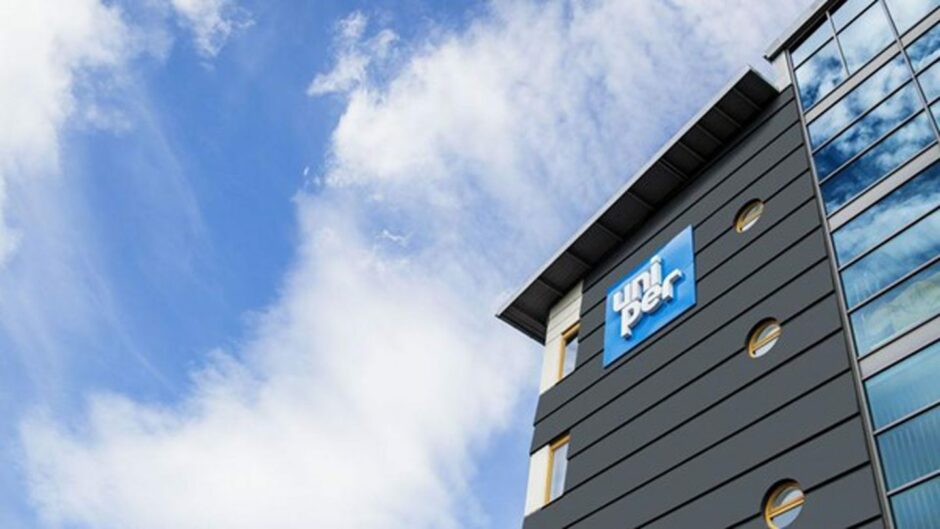
Germany will nationalise Uniper in a historic move to rescue the country’s largest gas importer and avert a collapse of the energy sector in Europe’s biggest economy this winter.
The government in Berlin will inject 8 billion euros ($8 billion) into the Dusseldorf-based utility via a capital increase at 1.70 euros per share, Finnish parent company Fortum Oyj said Wednesday in a statement.
Uniper has accumulated 8.5 billion euros in gas-related losses after Russia cut off supplies to Europe, sending prices for alternative sources soaring.
Agreement on amended stabilization package: Federal Government to acquire ~99% stake in #Uniper
The Federal Government, Uniper and @Fortum have today agreed on an amendment to the package of measures announced on 22 July 2022.
Read more: https://t.co/oevkYsONEm pic.twitter.com/xOK5gStATR
— Uniper (@uniper_energy) September 21, 2022
As part of the deal, expected to be completed by the end of the year, Germany will take control of Uniper, buying the 78% owned by Fortum — which is majority owned by the Finnish government — for about 480 million euros. The German state will own approximately 99% of Uniper.
“Today’s agreement provides clarity on the ownership structure, allows us to continue our business and to fulfill our role as a system-critical energy supplier,” Uniper Chief Executive Officer Klaus-Dieter Maubach said in a statement. “This secures the energy supply for companies, municipal utilities, and consumers.”
Chancellor Olaf Scholz’s ruling coalition is determined to ensure Uniper’s survival in coming months, when the energy crunch could worsen as temperatures fall heading into winter. Uniper has already been given a series of bailouts and rescue loans but those were quickly overtaken by the scale of the crisis and more robust state support is required.
Surging gas prices and Moscow’s move to squeeze supplies to Europe has forced the German government to overhaul its whole energy policy after decades of tight cooperation with Russia.
The nationalization of Uniper is just one part of a broader swoop by the government, which is also in talks over taking control of two other major gas suppliers.
Including loans already provided to the company, the total Uniper rescue package will cost the government around 30 billion euros, according to reports in German media.
Deal details
- German government injects 8 billion euros into Uniper via a capital increase at 1.70 euros per share
- Germany buys out the 78% stake held by Finland’s Fortum for about 480 million euros
- Uniper repays loan and guarantees to Fortum
- German government backstops Uniper’s financing until the capital increase is carried out
- Uniper plans to hold an extraordinary shareholder’s meeting in the fourth quarter to approve the deal, which also require EU and other regulatory approvals
Talks over Uniper were complicated by the involvement of the government in Helsinki, which has come under pressure over its handling of the rescue from opposition parties.
“Fortum’s board has today made an unavoidable decision amid exceptional uncertainty,” Finland’s Europe Minister Tytti Tuppurainen, who oversees government-owned companies, said in an emailed statement. “Fortum must protect its financing position in a way that safeguards its ability to manage its core business.”
Finland’s strategic interest in Fortum is ensuring adequate power generation in the country under all circumstances, the government said.
The German utility will hold on to its Swedish hydro and nuclear assets, giving Fortum first right of refusal until the end of 2026 if they’re put up for sale.
Germany’s move putting billions of euros of public money on the line, which is being overseen by Green Party Economy Minister Robert Habeck, risks stoking tensions within the ruling coalition.
Finance Minister Christian Lindner, a fiscal hawk who heads the business-friendly Free Democrats, has insisted that the government restore a constitutional limit on net borrowing next year. It was suspended the past three years to fund generous spending to offset the impact of the coronavirus pandemic.
The Uniper rescue also raises questions about the implementation of the government’s planned gas levy. The temporary measure, to take effect from Oct. 1, is designed to allow suppliers to share the burden of high prices with consumers but has prompted a public backlash.
Around a dozen companies have applied for compensation totaling about 34 billion euros, according to Trading Hub Europe, which is overseeing the levy, with Uniper guzzling most of the aid.
Uniper’s losses from finding alternative suppliers to Russia will likely surpass 18 billion euros this year, according to Bloomberg Intelligence. The company already reported a loss of more than 12 billion euros for the first half, ranking among the biggest in German corporate history.